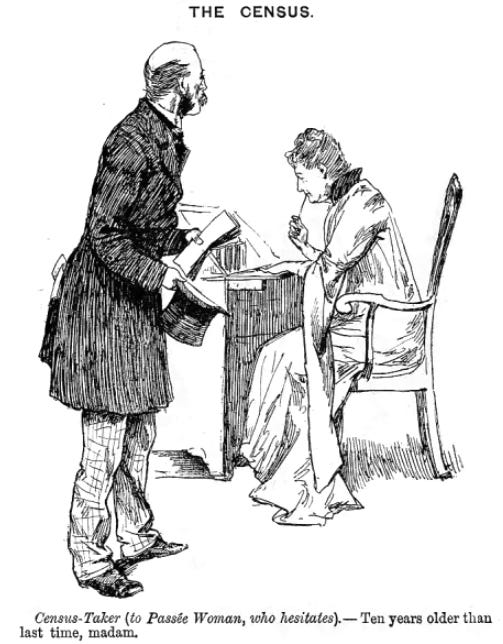The 2031 UK census is happening after all
Endorsement by statistics agencies is a row-back from previous position
The taste of my own words has never been sweeter.
After I wrote in Sum of Us just a few months ago that the prospect of a 2031 census in the UK seemed “unlikely,” yesterday the UK Statistics Authority announced that it was endorsing the National Statistician’s recommendation that one should be carried out. In other words, buckle up nerds - the census is go.
This is a turn-around from the statistics agencies’ earlier position. For years now - in fact, going back to before the 2011 census - the Office for National Statistics (ONS) and others have been publicly expressing a wish to end the ten-yearly count, which has been taking place since 1801.
More specifically, the plan floated in recent years has been to remove the need for a census, which is undoubtedly a costly and laborious way of taking a single snapshot of 68 million people, by creating a suite of live statistics which can give us more timely information by drawing on administrative data.
As I also wrote in Sum of Us, this is not such a crazy idea. Administrative data - from sources like payroll records, tax and benefits data, education and health department records - is often more accurate than what’s captured in surveys. Let’s not forget that women lying about their age on the census used to be such a big problem that there were public information campaigns to discourage it.
But the fact is that the progress made by the ONS towards this vision has not gone far enough to remove the need for a real, solid count. Yes, a lot of fruitful work has been done towards generating statistics on population size and migration flows from administrative data, but there is still a long way to go.
This new census endorsement comes at a time when the ONS is not in a happy place. National Statistician Sir Ian Diamond resigned in May and a permanent replacement has yet to be appointed. The agency has been weathering an accuracy crisis in some of its flagship datasets in recent years - in particular the Labour Force Survey which is vital to many areas of government planning - and morale is low.
Sir Ian had been one of the most enthusiastic cheerleaders for the admin-based system, saying already in 2023 of the new method’s ability to produce local population estimates that,
“We can do it with very close accuracy. We can do it much faster than we used to do them previously, and we can do them in a way that enables local authorities to bring those data in very quickly. So far, so good.” (PACAC; Oral evidence HC1682, 5 September 2025)
As time went on, all was evidently not good. In February 2025, when questioned by the Treasury Committee on the state of UK statistics, Sir Ian’s response was really quite heartbreaking:
“Please do not think that I am being complacent. I am not. I lie awake at night worrying about this the whole time.” (Oral evidence, HC 682, 4 February 2025)
The task now for the statistics authorities is to convince ministers to agree to the considerable expense of a census in 2031, while continuing to secure funding for the transition to admin-based statistics.
It may seem like overkill, but the two workstreams of a census and improving what can be done with admin data are both needed. I’d even call it risky to continue making admin-based estimates based on an experimental methodology for much longer without the ‘hard reset’ of a census to test whether or not they are accurate.
If ministers agree that good data is worth resourcing, and commit to another census, hopefully we can all sleep a little better at night.





